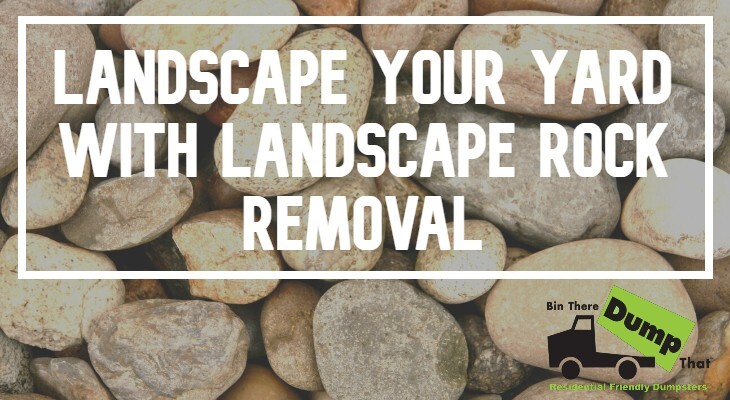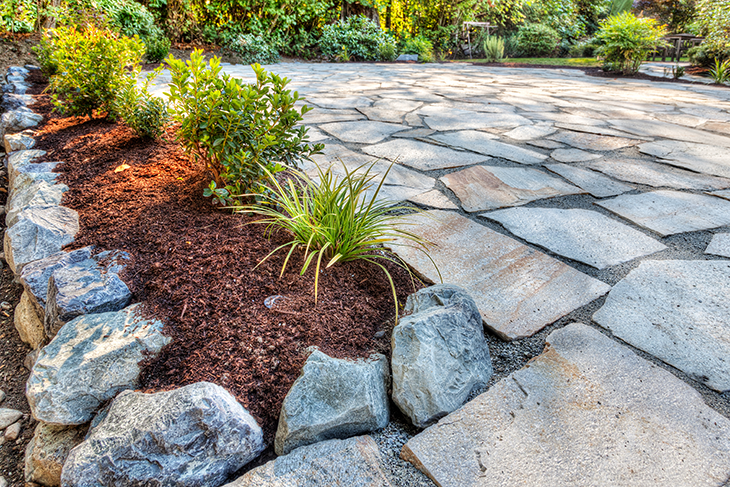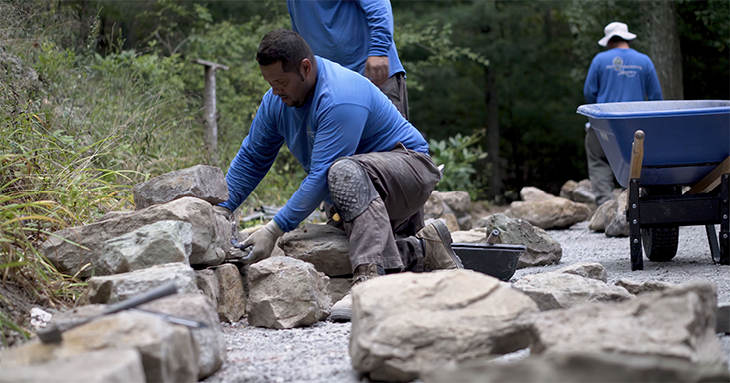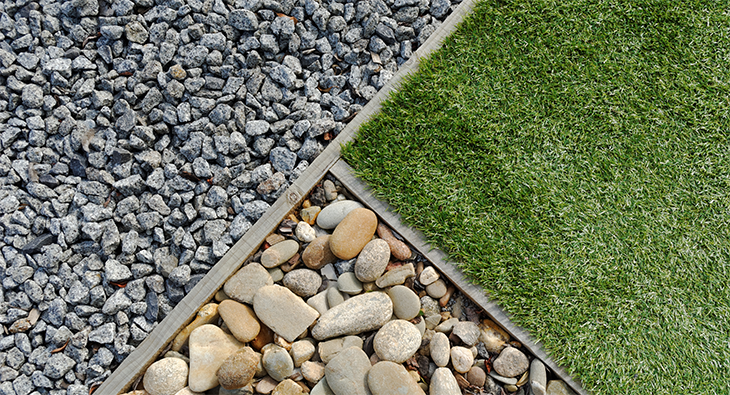
Landscaping rocks can add texture, color, and dimension to your yard. But sometimes, they can be a nuisance. Perhaps you're tired of tripping over them, or they're making it difficult to plant new flowers or trees. Whatever the reason, you're ready to remove them. In this article, we'll discuss the best methods and equipment for landscaping rock removal, and what you can do with all those rocks once they're gone.
The easiest way to get rid of small landscaping rocks is to rake them up by hand. A good rake for this job is one that has closely spaced tines, like a garden rake or leaf rake. You can also use a hoe or a shovel to help scoop up the rocks. However, this method can be time-consuming and labor-intensive, especially if you have a large yard with lots of rocks.
For larger rocks, you may need to use heavy equipment to remove them. In some cases, you may even need to hire a professional landscaping company to do the job for you. We'll discuss equipment options in the next section.

The best way to get rid of rocks depends on the size of the rocks and how many you need to remove. If you have small landscaping rocks, hand raking is the most efficient method. For larger rocks, you may need to use equipment like a skid steer loader or an excavator to dig them out. A professional landscaping company will have access to this equipment and can remove the rocks quickly and safely.
For those who are the DIY type:
You can book your own dumpster rental and have the dumpster rental service haul it away. A 4 or 6 yard dumpster rental is ideal for clearing landscaping rocks as it provides enough space to dispose of the rocks, and will be able to handle the weight of the rocks. Choosing a dumpster rental service minimizing the effort and time required for disposal if you're removing them yourself. This in turn, will save you quite a bit of money.
Removing a large rock from the ground can be challenging, but it's not impossible. The first step is to excavate around the rock to expose as much of it as possible. You may need to use a shovel or a pickaxe to loosen the soil around the rock.
Once you have a clear view of the rock, you can try to lift it out using a crowbar or a pry bar. Be sure to wear gloves and eye protection when attempting this, as the rock could shift unexpectedly and cause injury.
If the rock is too heavy to lift out by hand, you may need to use heavy equipment like an excavator or a skid steer loader. A professional landscaping company will have access to this equipment and can remove the rock safely and efficiently.

There are several pieces of equipment you can use for landscaping rock removal, depending on the size and amount of rocks you need to remove. Here are some options:

The short answer:
Yes, there is a machine that picks up rocks!
It's called a rock picker, and it's designed specifically for picking up rocks and debris from soil. A rock picker works by scooping up rocks with a rotating drum and depositing them into a hopper or container. It's a great option for removing small to medium-sized rocks quickly and efficiently. Many of these machines are large and pricey, so it may make sense only if you have a lot of land with a lot of rocks to pick.
The best rake to remove small rocks is one with closely spaced tines, like a garden rake or leaf rake. The tines should be strong and sturdy enough to pick up rocks without bending or breaking. Look for a rake with a comfortable grip, as you may be using it for an extended period of time. You may also want to consider a rake with a larger head for more efficient rock removal.

Now that you've removed all those landscaping rocks, what can you do with them?
Here are some ideas:
Landscaping rock removal can be a challenging task, but with the right equipment and techniques, it can be done efficiently and safely. Whether you're removing small landscaping rocks by hand or using heavy equipment to remove large boulders, be sure to wear protective gear and follow all safety guidelines.
Once you've removed your landscaping rocks, there are many options for disposing of them. Consider selling, donating, reusing, or recycling them to minimize waste and benefit your community.
Friendly, professional customer service, plus fair pricing, equals value.